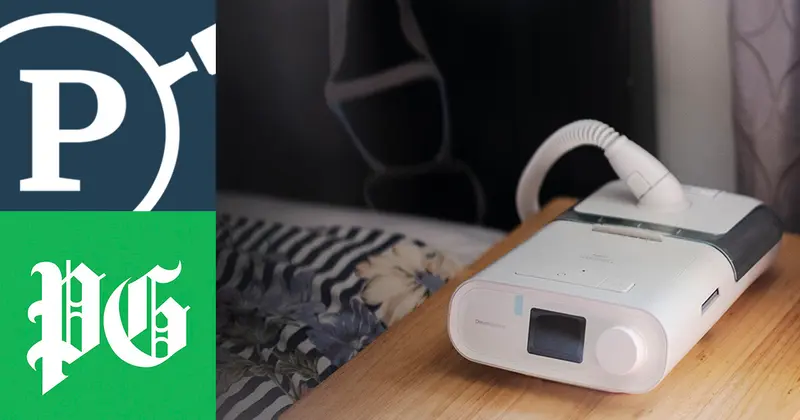ProPublica and the Pittsburgh Post-Gazette have filed suit against the U.S. Food and Drug Administration in federal court in New York, accusing the agency of holding back records related to the sweeping recall of breathing machines that were sold around the world.
In June 2021, Philips Respironics acknowledged that an industrial foam fitted inside its popular DreamStation continuous positive airway pressure, or CPAP, machines and other devices could break down and send particles and fumes into the masks worn by patients. Health risks include headaches, respiratory conditions, nausea and “possible toxic and carcinogenic effects,” the company said.
The FDA, which regulates the medical device industry, categorized the recall as Class 1, reserved for defects that can cause serious harm or death.
But the agency denied multiple requests by the news organizations to quickly release documents under the Freedom of Information Act, including the company’s prior test reports on the degrading foam and monthly updates by Philips about the status of a recall that has impacted millions of people in the United States and other countries.
In its denial, the FDA estimated it would take as long as two years to produce the records.
After the lawsuit was filed in April, the FDA agreed to begin producing documents. The agency, however, fully redacted the company’s test results and assessments on the degrading foam — more than 1,000 pages — even though the FDA has previously summarized those results in publicly available records.
The agency cited an exemption in FOIA law that protects trade secrets and commercial or financial information that could impact a company’s business interests.
“The company’s interests should not supersede the public’s need to be fully informed about a product that the FDA itself has said has defects that can cause serious harm or death,” Post-Gazette Executive Editor Stan Wischnowski said.
Representatives for the news organizations said they plan to continue challenging the FDA’s response.
“Transparency in this case is a matter of significant and urgent public concern,” Sarah Matthews, ProPublica’s deputy general counsel, said in a statement. “These records will shed light on the recall of Philips ventilators and other breathing devices that have put the health of millions of Americans in jeopardy.”
Lawyers for the FDA have previously argued the news organizations are not entitled to an expedited delivery of records.
“Exceptional circumstances exist that necessitate additional time,” the government said in its response.
A spokesperson for the FDA said the agency does not comment on ongoing litigation.
Mediahuis NRC, an Amsterdam-based newspaper collaborating with ProPublica and the Post-Gazette on stories about the recall, has also faced obstacles in getting documents from government agencies.
Jet Schouten, a reporter at NRC, filed requests with the national health agencies in the Netherlands, Germany, Sweden and Finland for records related to the recall. Schouten said that the countries have no publicly available data about patient complaints related to the machines.
Schouten received documents from most of the countries, but the Dutch agency did not turn over the requested records. She turned to a Dutch court, which imposed deadlines for the agency to produce the records and then fined it 23,000 euros for missing the deadlines.
Schouten received the money but has not yet received the records.
“I don’t want any money,” Schouten said. “I want the documents.”
Michael Korsh of the Pittsburgh Post-Gazette contributed reporting.












